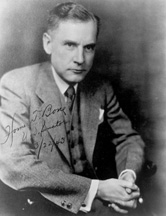A Quote by Fidel Castro
Nowhere in the world, in no act of genocide, in no war, are so many people killed per minute, per hour and per day as those who are killed by hunger and poverty on our planet.
Related Quotes
People say to us, look, it may well be the case that there are fewer wars and fewer genocides, but surely more people are being killed. But when we look at this, the number of people killed in wars involving a state every year, all the wars, and you can see there's a high point, that's the Korean war, and it keeps on going down and down and down. If you look at the average number of people killed per conflict per year, it goes from 37-thousand in 1950 to just 600 in 2002.
Here in the United States we're now consuming about three gallons of petroleum per person per day. That's twenty pounds of oil per person per day. We only consume about four pounds of oxygen per person per day. We're consuming five times more oil each day, here in the United States than we are oxygen. We've become the oil tribe.
It cost about 75 cents to kill a man in Ceasar's time. The price rose to about $3,000 per man during the Napoleonic wars; to $5,000 in the American Civil War; and then to $21,000 per man in World War I. Estimates for the future wars indicate that it may cost the warring countries not less than $50,000 for each man killed.
According to UNESCO: there are over 154 million children in the world deprived of education due to poverty, slavery, racism, religious extremism, gender discrimination, and geographical isolation. The cost to educate a child in the third world is about $ 1 per month per child. To achieve global literacy, the investment would be $ 8 billion per year for 15 years.
We draw many benefits from globalization that people take for granted. Poverty has been reduced massively around the world. If you look at the Chinese numbers, it is quite mind-boggling: 700 million people taken out of poverty in a matter of 40 years, the poverty rate having moved from over 30 per cent from hardly six per cent now. That would not have happened if there had not been globalization.
We are compelled to work more hours per day, receive less pay per hour, pay more for what we buy, and recieve less for what we sell. The consequence is that we must work harder and more hours per day than we should, and in the end have less than what is due to us as our part of the advantages, conveniences and opportunities resulting from advancing civilization.
In my first start-up, I had an initial advertising budget of $5 per day total. That would buy us 100 clicks per day. At $5 per day, marketing people scoffed and said that is too small to matter. But if you think about it, to an engineer, 100 real humans everyday giving your product a try means you can really start improving.










































